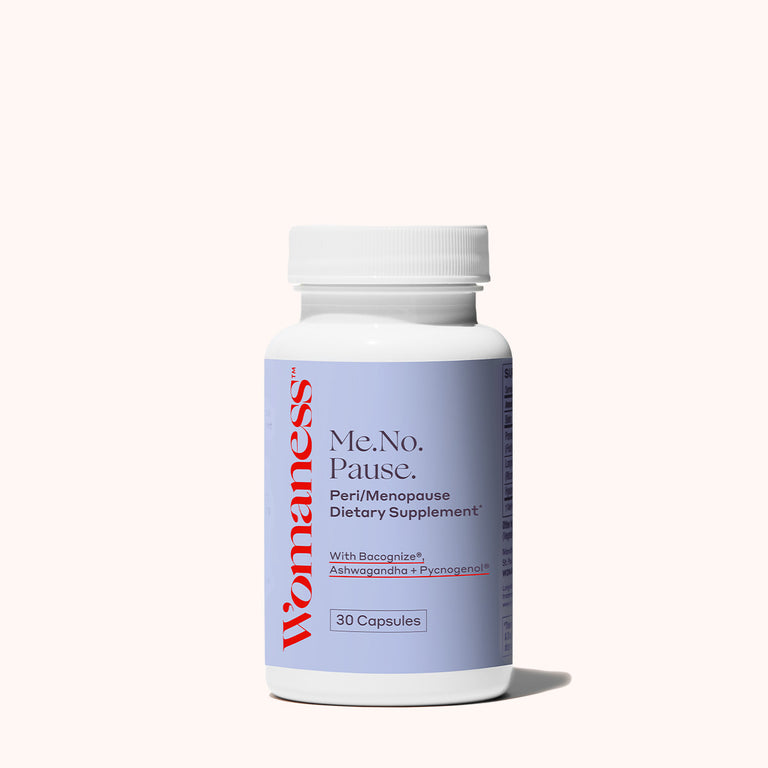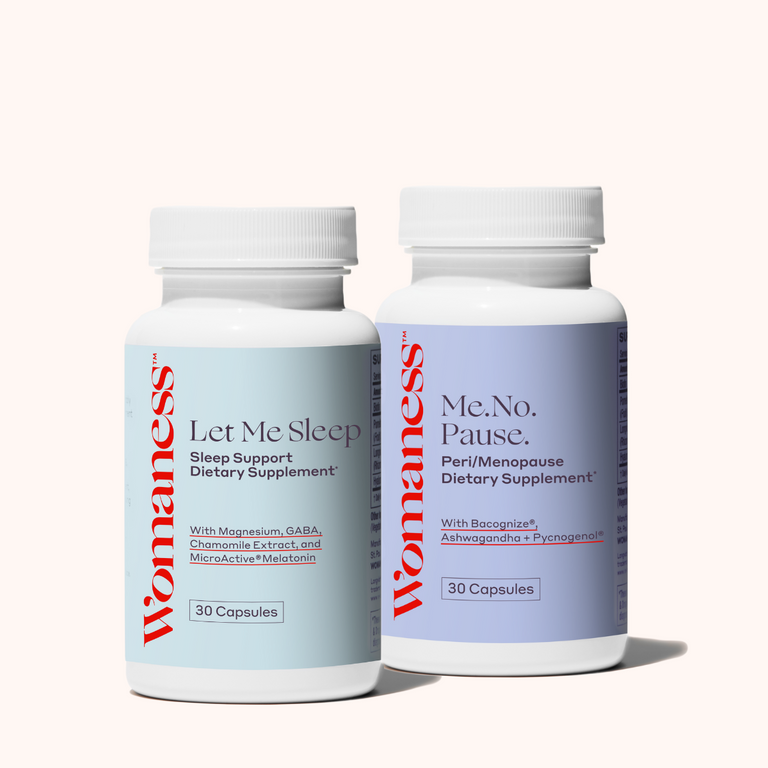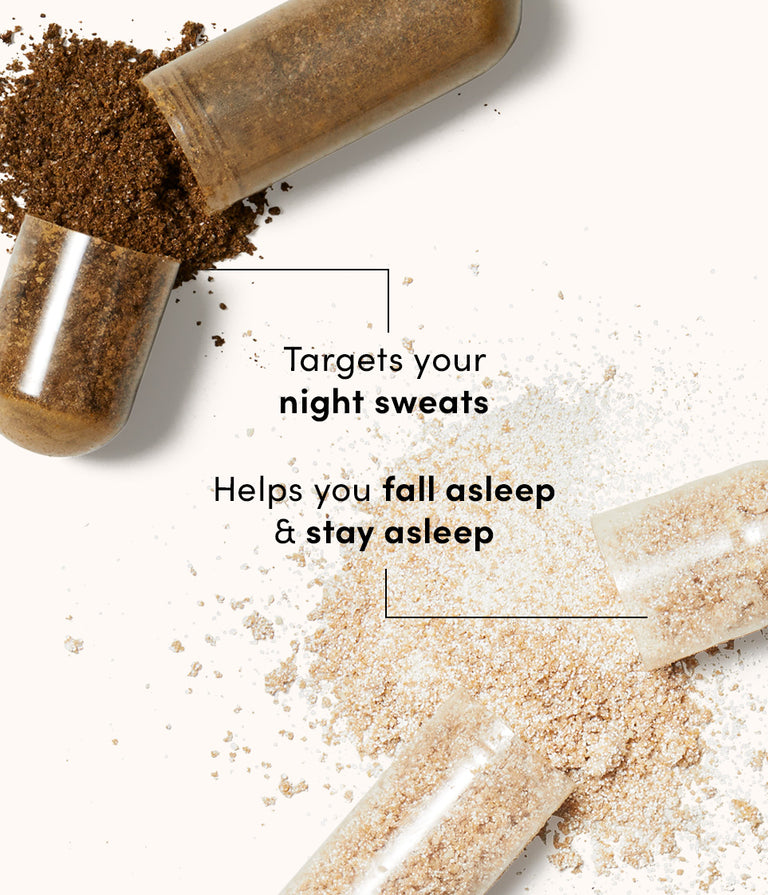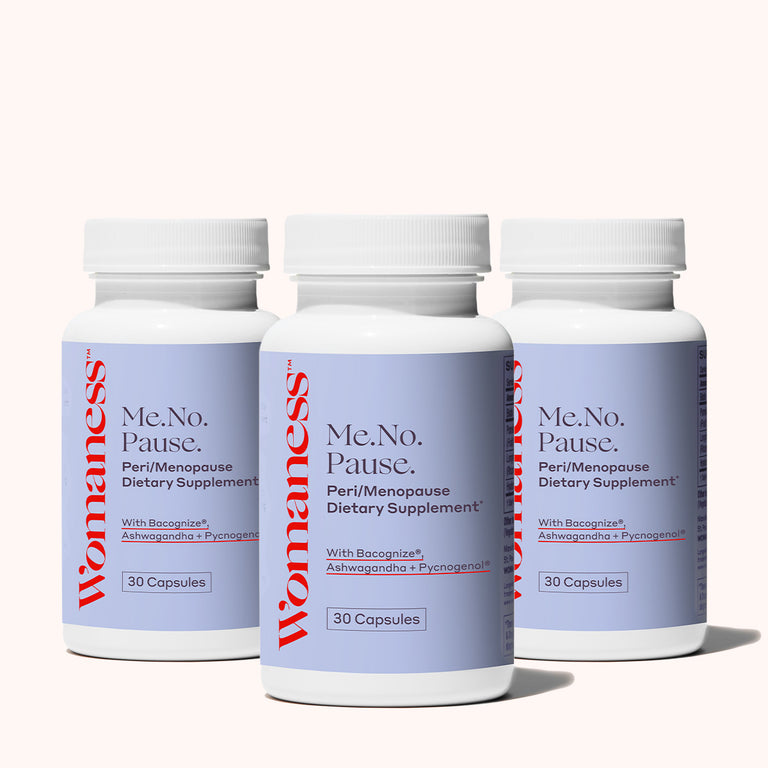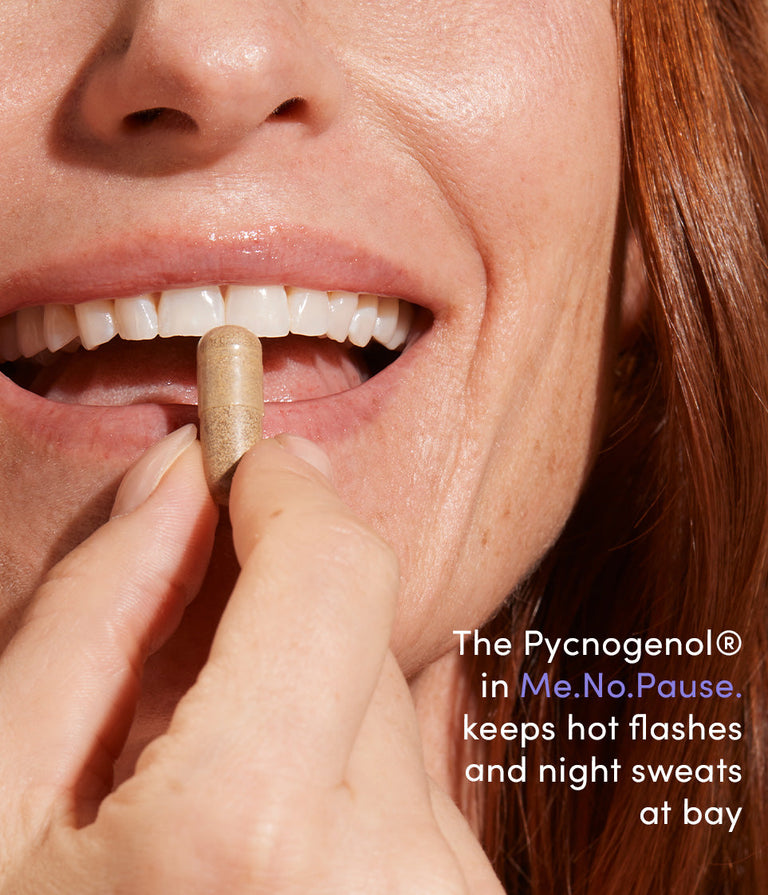By Julia Walker, RN, BSN 5-Minute Read

Julia Walker, RN, BSN is a women's health nurse, writer, and member of the perry team. Perry connects and supports perimenopause warriors in a safe space to build friendships, learn, and laugh. The moment you think, “WTF, could this be menopause?”—join our sisterhood!
One of the most common symptoms you might experience in menopause or perimenopause? Hot flashes. They also happen to be one of the most disruptive side effects of this life stage, making them the most common reason women see a doctor. Unfortunately, these heat surges don’t just occur during the day; they often show up when you're trying to get some shuteye, hence their nighttime moniker, "night sweats." Waking up in soaked sheets can disrupt your night, affect your quality of sleep, and make you feel even more exhausted during the day. (Um, no thanks!) And because night sweats can last several years, you definitely need to find ways to manage and even prevent them. Here’s how to do it.
WHAT CAUSES NIGHT SWEATS?
Let's start with the science. Your body temperature is a highly complex process that relies on multiple symptoms working together. The hypothalamus in your brain is considered your body’s thermostat (among many other important roles in regulating homeostasis). It receives messages about temperature from thermoregulators in your skin and peripheral tissues. When your body temperature is too high, the hypothalamus signals over 3 million sweat glands (!) to release clear fluid to help heat release through evaporation.
A similar process is followed when you're cold, but instead of mobilizing sweat (or eccrine) glands, the body directs blood flow to different tissues to increase your internal body temperature. It also causes your hair follicles to stand up (hello, goosebumps) and your muscles to tremor to generate heat.
Perimenopause and menopause can throw off this systematic regulation of your body temperature, though we don’t fully understand why. Likely, shifts in hormones like estrogen and progesterone change how your internal thermostat registers and regulates your body temperature, but more research is needed to investigate why vasomotor symptoms are so prevalent during this time.
Of course, there are other causes of night sweats as well, including infection, thyroid problems, medications, anxiety, and stress.
"If you have night sweats, you'll likely still experience them from time to time, but their severity may decrease with the proper steps"
HOW CAN YOU PREVENT NIGHT SWEATS?
Some women can curb night sweats during perimenopause and menopause. However, it's tough to prevent them entirely. If you have night sweats, you will likely still experience them from time to time, but their severity may decrease with proper steps like these:
Ask about hormone replacement therapy
One of the most effective options for managing vasomotor symptoms like hot flashes and night sweats is hormone replacement therapy. If you're interested in and are safe to take hormone therapy, you'll usually see a marked improvement in night sweats—as long as you're on the right dose. Many doctors recommend birth control pills because they're in high enough doses to keep your hormone levels steady while also preventing pregnancy (which yes, can happen up until you officially reach menopause). The ideal option for you depends on your medical history, your risk factors, and how you tolerate hormone therapy.
Stop smoking
Studies show that women who smoke cigarettes report more intense hot flashes and night sweats. And it should be noted that hormone therapy is not often recommended for women who smoke because it increases your risk for certain complications like blood clots. If you need help kicking the habit, reach out to your doctor for the right strategies for you.
Watch your diet
Certain foods exacerbate hot flashes. While it can be different for every woman, there are some common triggers, including spicy foods, caffeine, and alcohol. In addition, some women notice that sugar worsens hot flashes and night sweats. If you're wondering what could be contributing, it's smart to keep a symptom journal and food log to look for patterns related to your diet.
Exercise daily
The benefits of exercise are endless. It helps strengthen your immune system, improves your sleep, keeps your weight in check, and boosts your mood. And the bonus? It may also decrease night sweats. No matter your age, getting plenty of exercise is essential.
"A maritime pine bark extract from southwestern France supports healthy blood circulation to help manage hot flashes and night sweats..."
Try supplements
Some women prefer supplements along with lifestyle changes to manage menopause symptoms. Supplements can be an effective option, but choosing one can be difficult.
If you're interested in supplements that target multiple symptoms, you can consider a natural supplement like Me.No.Pause. from Womaness, which helps with hot flashes and night sweats, vaginal dryness, memory, mood (and more). Its ingredient list includes a maritime pine bark extract from southwestern France that supports healthy blood circulation to help manage night sweats—without impacting your hormone levels.
As always, before trying any supplement, it is important to consult your doctor first to be sure the ingredients are safe for you.
7 QUICK TIPS FOR MANAGING NIGHT SWEATS (TONIGHT!)
Along with considering hormones, supplements, and lifestyle changes, some immediate changes in your environment may help manage night sweats. Try the following to improve your chances of a better night’s rest:
1. Turn down the thermostat
2. Turn up the fan
3. Sleep in moisture-wicking clothes or layers (or, ahem, go sans clothing altogether)
4. Use a lightweight blanket
5. Keep a cool glass of water or cooling spray next to your bed
6. Avoid hot baths or showers before bed
7. Try stress-relieving activities before bed like journaling, meditating, or reading
More For You
What’s Happening Here? Hot Flashes
Perimenopause: All You Need To Know
Ingredient Spotlight: Maritime Pine Bark Extract

